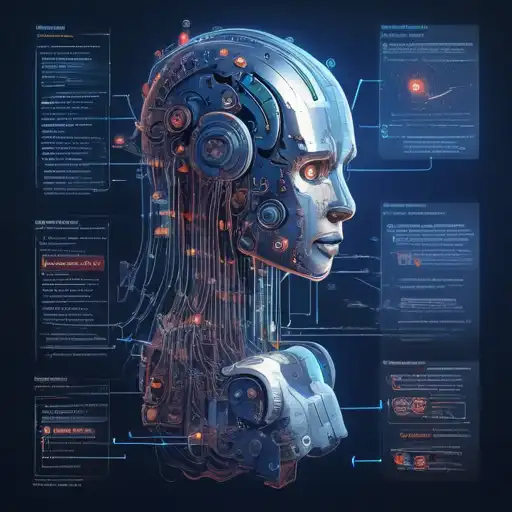Introduction to Machine Learning Algorithms
Machine learning algorithms are the backbone of artificial intelligence, enabling computers to learn from and make decisions based on data. For beginners, understanding these algorithms can seem daunting, but with the right approach, it's entirely achievable. This guide aims to demystify machine learning algorithms, making them accessible to everyone.
Types of Machine Learning Algorithms
There are several types of machine learning algorithms, each suited to different kinds of tasks. Here's a brief overview:
- Supervised Learning: Algorithms learn from labeled data, making predictions based on past examples.
- Unsupervised Learning: Algorithms identify patterns in data without any labels.
- Reinforcement Learning: Algorithms learn by interacting with an environment, receiving rewards or penalties for actions.
Popular Machine Learning Algorithms Explained
Let's dive into some of the most popular machine learning algorithms:
- Linear Regression: Predicts a continuous outcome based on one or more predictor variables.
- Decision Trees: Uses a tree-like model of decisions and their possible consequences.
- Neural Networks: Mimics the human brain's structure and function to recognize patterns.
- K-Means Clustering: An unsupervised algorithm that groups data into clusters based on similarity.
How to Choose the Right Algorithm
Selecting the right algorithm depends on the problem you're trying to solve, the nature of your data, and the desired outcome. Consider factors like the size of the dataset, the type of data, and the complexity of the problem.
Practical Applications of Machine Learning Algorithms
Machine learning algorithms power many of the technologies we use daily, from recommendation systems on streaming platforms to fraud detection in banking. Understanding these algorithms opens up a world of possibilities for innovation and problem-solving.
Getting Started with Machine Learning
For those interested in diving deeper, numerous resources are available, including online courses, tutorials, and communities. Starting with foundational knowledge in statistics and programming can also be beneficial.
Machine learning algorithms are a fascinating area of study with the potential to transform industries. By breaking down complex concepts into understandable parts, beginners can start to explore the vast possibilities of machine learning.
For more insights into the world of technology and data science, check out our other articles on Data Science Basics and AI for Beginners.
